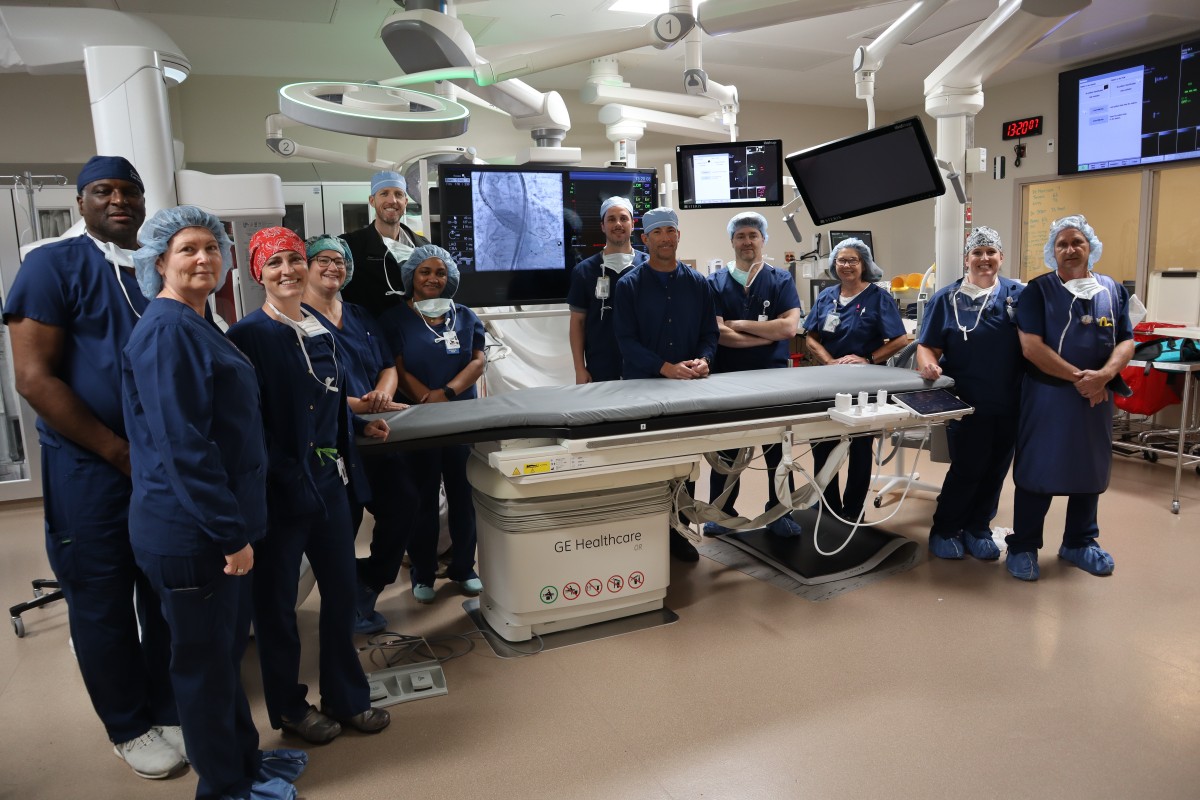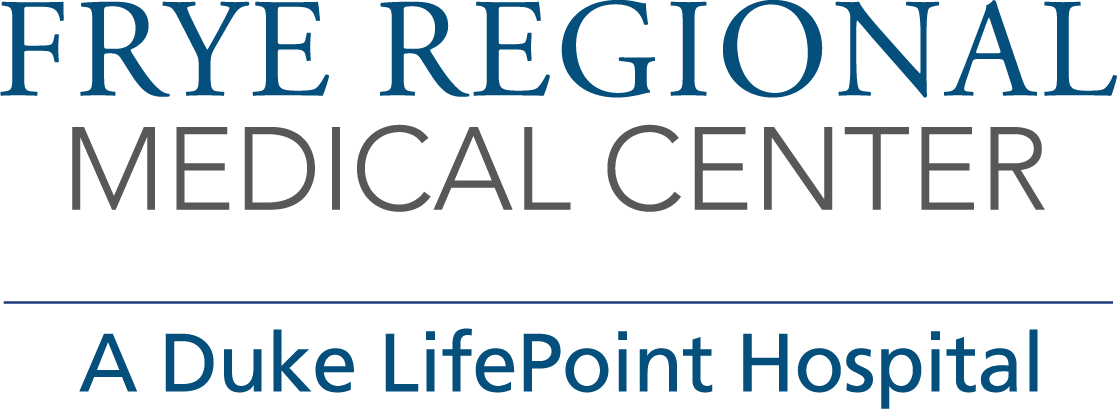Frye Regional Heart Center First in Western Piedmont Region to Offer Interventional Procedure for Heart Valve Disease
July 10, 2024

HICKORY, NC (July 10, 2024) – The Frye Regional Heart Center at Frye Regional Medical Center announced today that its first transcatheter aortic valve replacement (TAVR) procedure was performed in late June. The structural heart team – led by interventional cardiologist John Morrison, MD, and cardiovascular and thoracic surgeon Brett Starr, MD– successfully performed the procedure. Frye Regional is the first hospital in the Western Piedmont Region of North Carolina to provide this minimally invasive procedure to patients with severe aortic stenosis.
“As the region’s heart hospital, we are continually strengthening our cardiac program to provide high quality care close to home,” said Philip Greene, MD, chief executive officer of Frye Regional Medical Center. “Congratulations to our heart doctors and team members who have worked diligently to launch this important service for our patients. We are proud of their dedication to our mission of making communities healthier.”
Also called transcatheter aortic valve implantation (TAVI), TAVR is a less invasive alternative to open heart surgery that is designed to replace a diseased aortic valve. This procedure offers an option to those patients that are too high risk for conventional cardiac surgery; for example, those that have had a prior aortic valve replacement.
“An estimated 1.5 million people in the U.S. suffer from aortic stenosis, with 500,000 of these people having a severe condition,” Dr. Starr said. “Bringing this innovative procedure to Frye Regional means that patients and their families do not have to leave the region to repair their severe heart valve disease.”
Aortic stenosis occurs when the aortic valve opening narrows and restricts normal blood flow. The leaflets, which are flaps of tissue that open and close the valves, calcify and become stiff over time. This puts stress on the heart as it pumps harder to compensate and increases the risk of heart failure.
The TAVR procedure involves delivering a prosthetic valve to the calcified aortic valve through a catheter-type device. Once deployed into place, the sides of the synthetic valve hold the compromised leaflets open, and the new valve begins to regulate blood flow without removing any portions of existing tissue. Compared with traditional aortic valve replacement, TAVR carries a lower rate of bleeding, shortens recovery, and reduces hospital stays.
“As the only cardiac program in the region with this next-generation valve technology, our TAVR team has been specially trained to perform the procedure for our patients,” Dr. Morrison said. “I would like to thank our team of physicians, as well as our clinical teams who support our cardiac catheterization lab and operating room, for their hard work to make this possible. Frye Regional has a history of innovation and leadership in cardiovascular care, and together we are proud to improve quality of life and reduce mortality risk for patients in our community.”
TAVR is one of several procedures treating heart valves that are offered as part of the heart program at the Frye Regional Heart Center. Other procedures include mitral valve repair, mitral valve replacement, tricuspid valve repair, and surgical aortic valve replacement.
Frye Regional Heart Center, a Duke Health affiliate in heart, is backed by the resources of Duke Health, which provides the most current training and staff education, and access to the latest evidence-based guidelines for heart care.
Before a person qualifies for TAVR, the structural heart team will review the patient’s medical condition, assess the severity of the valve’s defect, determine treatment options, and inform them of the benefits and risks of these treatments. For more information, visit MyFryeRegional.com/heart.
